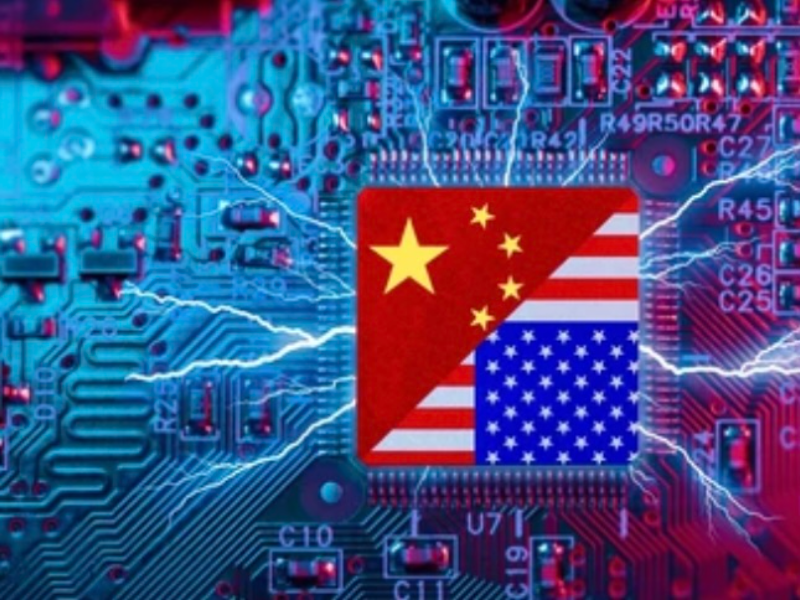- US plans to publish a new rule next month that will block the export of semiconductor manufacturing equipment to Chinese chipmakers.
- The move aims to curb advancements in supercomputing and AI technologies in China that could potentially benefit the Chinese military.
OUR TAKE
The new measures will further tighten export controls and reinforce US efforts to contain China’s technological advancements in critical sectors. This new constraint against China poses a further challenge to China’s technological development, which might aggravate the tension between the two nations.
-Vivienne Xie, BTW reporter
What happened
The Biden administration is about to introduce a new rule next month, expanding US authority to restrict exports of semiconductor manufacturing equipment to Chinese chipmakers, according to sources familiar with the matter. However, the rule will exempt shipments from key allies, including Japan, the Netherlands, and South Korea, thus mitigating its overall impact. This exemption means that major chip equipment manufacturers such as ASML and Tokyo Electron receive immunities from the restriction, leading to a surge in their share prices following the news.
This new rule is an extension of the Foreign Direct Product rule, which aims to prevent several Chinese semiconductor fabs, central to China’s most advanced chipmaking efforts, from receiving critical equipment. Countries that will face these new restrictions include Israel, Taiwan, Singapore, and Malaysia. The government has not disclosed the list of the targeted specific Chinese fabs yet.
Also read: Russia to allow crypto payments in international trade to counter sanctions
Also read: US-listed crypto stocks retreat after Trump-fuelled surge
Why it’s important
The US Commerce Department, responsible for overseeing export controls, declined to comment on the impending regulation. The move is part of a broader strategy to hinder China’s progress in supercomputing and AI technologies that could potentially enhance its military capabilities. The authority previously imposed similar restrictions on Chinese tech giant Huawei, which has since adapted and remains a key player in China’s advanced chip production and development.
Additionally, the new rule will address a loophole in the Foreign Direct Product rule by lowering the threshold for when foreign items are subject to US control. This means that equipment could be restricted if it incorporates any US technology, regardless of where it is manufactured. The US also plans to add approximately 120 Chinese entities to its restricted trade list, including several chipmaking factories, toolmakers, and providers of electronic design automation software. This draft regulation illustrates Washington’s ongoing efforts to maintain pressure on China’s burgeoning semiconductor industry while avoiding conflict with allied nations. The Foreign Direct Product rule empowers the US government to block the sale of products made with American technology, even if they are manufactured abroad. This has been a key tool in curbing Chinese access to advanced technologies.

